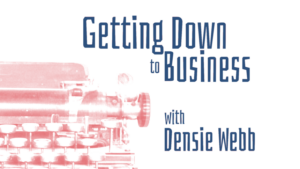REAL WORLD
This playful post is inspired by a character I just finished writing for my next book. She has the ability to see auras, and I had a lot of fun assigning different colors to people seen through her eyes. It was like having a secret window into a character’s psyche, allowing us to know who the character really was and not just how they portrayed themselves to the outside world. In that way, color became a kind of subtext. And people’s auras kept surprising her—and in turn, will surprise the reader.
As the actual writer dreaming all this up, I also found aura colors to be shorthand for myself to help develop the character’s personality and mindset in a no-nonsense, cut-to-the-chase way. It was so helpful, fascinating, and refreshing to do.
So try taking a look at your characters and imagine what their aura would be if you could see it.
But what are auras, you might ask?
Auras are said to be the electromagnetic fields we emanate, and the colors of our auras are supposedly like the palette of our personality. It’s very similar to giving off a vibe. A person generally favors one or two colors, and sometimes that can fluctuate with their mood or health.
All the colors have meanings. There are different interpretations for them. You can find countless books, online articles, and videos about auras… How to see them. How to interpret them. How to find out what your colors are. But for the sake of this post, listed here is a very simple color summary I’ve been working from. Take a look and think about who in your story favors what color. It might help you to define them more.
Red: You are an adventurer with high energy, intensely passionate, strong willed, competitive, and ambitious. (Murky dark red – denotes being angry and confrontational)
Orange: Creativity abounds for you. You enjoy artistic pursuits and tackle challenges with a positive outlook. (Burnt orange – shows a lack of energy or being burned out)
Yellow: You have a sunny disposition and are charismatic, inquisitive, inventive, and at times eccentric. (Off yellow – being overly critical or scatterbrained)
Pink: With a loving nature, you are generous, caring, tender, and compassionate with others.(Murky pink – overly sensitive or insecure)
Blue: You are intuitive, a strong communicator, inspiring to others, imaginative, and value clear intentions. (Murky blue – feeling stifled, anxious, or judgmental)
Green: A nature lover, you are compassionate, giving, and hardworking. You are also determined and full of life. (Off green – feeling jealous, mean spirited, or overly stubborn)
Purple: You are highly empathetic, intuitive, introverted, a deep thinker, and love to ask the big questions about life. (Darker purple – excessively worrying or feeling insecure)
Gold: Wise and strong, you are seen as a leader and enlightened. (Off gold – being too proud or obsessive)
Pearl (rarest aura color): You have a pure heart and are spiritually inclined with the intention to help others. (Dark or murky pearl tones: feeling unbalanced)
Streaks or holes in an aura: You may be confused, depressed, or dealing with emotional trauma.
Deep Shadows: Could indicate you are ill or struggling with negative thoughts or emotions.
Please share with us in the comments below if you have any specific “personality” tricks to help you when you are creating characters. I’d love to know!
Good journey at the keyboard. From […]
Read MorePexels image by: Suzy Hazelwood
** Warning: the following may contain triggers for the bug averse**
I know how my roguish brain works, yet I resist ….
When I had the ‘luxury’ to focus entirely on writing, it was a wonderfully prolific time. I wrote novels, short stories, articles in local or online magazines, and dabbled in restaurant reviews. I attended conferences and even spoke at a few of them. I did a handful of book signings—meeting readers was a joy and the only part of that I looked forward to. Along with Angie Ledbetter, we became Publishing Editors of the Rose & Thorn Literary E-zine and published many fine writers, and I still remain proud of how we gave so many new and emerging writers and poets a home for their gorgeous works.
Brain didn’t have time to resort to its shenanigans. But since I have not been writing, it’s turned wacky-doodle-dooooooo!
Maybe you think, “Yeah, yeah. The idea that writers are weird, blah blah blah.”
Okay then—it’s not that I’m sometimes (usually) weird because I’m a writer but I’m sometimes (usually) weird because I’m not writing.
My brain sucks up all manner of idea, thought, passersby comments, road signs, dreams, a commercial about Raid (ugh, WHERE IS THE REMOTE? Fast forward!), a Facebook post, something on the floor that turned out to be a Craisin, things my lunatic Maw-Maw told me in the 60s, etcetera.
And my brain likes to fling all this shit about inside my skull willy nilly and makes things a bit difficult to manuever.
I gave my brain a good talking to this morning while walking my wonky-toothed chihuahua mutt. During these heart-to-brain talks, Brain waits patiently for me to finish, giving a few Uh huhs and huh you don’t says and Mmm hmmms. And then it starts up all over again.
I can silence it (temporarily) by saying, “redirect.” Not REDIRECT DANG IT BRAIN YOU ARE DRIVING ME CRAZY SO REDIRECT REDIRECT REDIRECT!” as that only makes my brain go Supernova. So, simply, quietly, serenely: “redirect.”
Some days Brain is exhausting and I could write a book on that, uh, but I won’t. Other days are rather benign but still annoying.
Take yesterday. I went to Big Orange Letters discount store and bought a few things that cost less. Not everything is about The Great Wizard of ‘Zon. Is not!
Sometimes I need to walk around where other people are like-minded-shopping and there are bright lights and shiny things. So I have my purchases in their bags (my apologies to the Earth) because I forgot my reusable bags in my car and people are not so patient to wait for me to fetch them. Once home I take the stuff up the stairs to my living area and suddenly the Raid commercial that I didn’t fast forward through quick enough fwaps me upside the head.
Read MoreTherese here to introduce you to someone near and dear to me: my son, Liam. ❤️
Liam’s screenwriting journey started as a Rod Serling fan. Inspired by Serling’s allegorical storytelling, he attended USC’s film school where his thesis film, You Missed a Spot, was selected in over 30 festivals internationally. Since then, he has worked on the production-side of the industry, most recently wrapping as the line producer’s assistant on FX’s Mayans MC.
You may have heard about the downturn of work in Hollywood, and so Liam has bided his time between jobs doing something he was likely, inevitably, genetically born to do: WRITE. That the short story he’s written, that he’s now determined to see produced (see Kickstarter), taps into a real-life wound should come as no surprise to you, WU community.
But I’ll let Liam tell you about that, WU-style. Take it away, kiddo.
As writers, we often face the challenge of crafting stories that feel authentic, especially when venturing into experiences we haven’t lived ourselves. This was the case for me when I set out to write my new short film, Venus in Furs, a psychological thriller that personifies heroin as a woman.
I’m a filmmaker living in Los Angeles, and my life was deeply impacted when one of my close friends from film school overdosed on drugs laced with the powerful synthetic opioid, fentanyl. I remember the first time I met him—we were attending a mandatory lecture on the cinema and music of the 1960s. We were sitting on either side of another student we both had a crush on and got into a pointless debate about The Doors, as if this poor girl remotely cared about some band from five decades ago. He demolished me in the debate. The guy was like Jim Morrison himself—long-haired, charismatic as hell, with a ribcage you could practically see through his t-shirt.
After the girl successfully escaped, the two of us grabbed lunch and admitted we were only trying to impress her. Instant friendship.
During lunch, our conversation abruptly ended when he mentioned he was going to leave to smoke some opium. I assumed he was joking at the time—I mean, I had just met the guy. What, opium? You mean that shit from the 1800s? But over time, I came to learn that he was affected by a powerful addiction that, to him, wasn’t some unshakable affliction as often depicted, but rather the means to radically take hold of his post-high-school freedom and live out the fantasy of the rock ’n’ roll lifestyle he so loved.
The last time I saw him, I visited his three-bedroom high-rise in Downtown Los Angeles, full of vintage records and a collection of Les Pauls paid for with credit cards he couldn’t pay off. It was the Fourth of July, and he was excited to launch fireworks at passing cars. At that point, I had witnessed the drug obliterate his ambitions. He had stopped attending classes, gained weight, and lost that magic spark that drew me to him in the first place. Heroin took everything from him. And yet he was so happy to participate in his own self destruction. In fact, sitting there with all his guitars and […]
Read More
In 2016, when the film Manchester by the Sea was released, I went to see it with a friend. The movie, directed by Kenneth Lonergan, tells the story of a reclusive, down-and-out janitor, played by Casey Affleck, who has lost his children in a house fire caused by his own negligence. Depressed and antisocial, he’s forced back into the land of the living after the sudden death of his brother, when he becomes the legal guardian of his teenage nephew.
Although the movie was sad, it spoke volumes about our ability as individuals to overcome almost unbearable circumstances, grounding and humanizing the sort of horrendous catastrophe that is all too often politicized or used to boost ratings by the mainstream media.
As my friend and I were walking out to the car after the movie, my friend said, “If I’d known how depressing that was going to be, I would have stayed home.”
I didn’t mention it at the time, but I loved Manchester by the Sea. I wasn’t the only one. The film was nominated for six Academy Awards and won two: Best Actor and Best Screen Play.
In Poetics, Aristotle’s famous essay on Greek drama, he wrote that the purpose of tragedy is to “arouse sensations of pity and fear, and to purge [the audience] of these emotions so that they leave the theater feeling cleansed and uplifted, with a heightened understanding of the ways of gods and men.”
Anyone who enjoys listening to the blues knows how this works. It’s also the reason that some of the most revered and beloved works of literature in the English language are tragedies.
Because they offer insight into the human condition, often exhibit circumstances that foster societal plight, and promote critical thinking, tragedies were once standard curriculum in high school and college English classes.
In the late 1980s, when I was in high school, we read Shakespeare’s Othello, Hamlet, Macbeth, and Julius Caesar.
As freshmen, we cringed and wrung our hands after learning the fate of Thomas Hardy’s Tess, the protagonist of his masterwork, Tess of the d’Urbervilles. Poor Tess never had much of a chance.
My sophomore year, we spent a week discussing the suicide of Willy Loman, the sad-sack anti-hero of Arthur Miller’s Death of a Salesman.
I’ll never be able to forget Melville’s luckless Billy Bud, hanged by his neck from the yardarm for a crime he didn’t commit, or the murder of Jay Gatsby, F. Scott Fitzgerald’s lovesick millionaire, shot to death in his own swimming pool.
These works of literature and others like them can be tough to get through. But, in my opinion at least, the cultural, ethical, and spiritual enlightenment tragedies offer outweighs any emotional burden they might impart.
And yet, sometime over the last thirty or so years, tragedies fell out of favor. Novels like Of Mice and Men and The Scarlet Letter make up a large percentage of the books that have been banned in certain parts of the country. Perhaps this is a result of the general backlash against anything even remotely intellectual that’s run rampant in the U.S. for the past few decades, […]
Read MoreI love the Olympics. Summer and Winter. The athletes from all over the world, The sports most of us only see every four years. The glorious variety of the human body and what it can do. Let me see it all!
The television coverage is mostly about winners and the medal count: who won, who was supposed to win but didn’t, how much they won by, or how little, how much or how little they lost by, who and which country has the most medals, most golds.
But the more race- and event-side interviews I heard, the more I saw that the athletes focused on other things: their game plan, their training, their mental and physical fitness, their support system. For some, executing their game plan would result in a medal. For the majority of competitors, it would not.
Yet they were all Olympians.
And Olympians seem to measure success differently from the shiny-reward-obsessed media and public.
Chris Chavez asked Connor Mantz, a U.S. marathoner who came in 8th at the Olympics how he evaluated success for the race. Mantz said,
“The build for it was really, really good. I think my fitness was great. I think I was in a great spot, physically. The more I review it, I probably underperformed for how fit I was, but it’s hard to evaluate…. I was going in with the mentality that I could medal even before we left. I just knew my fitness was at a different level. Yes, eighth is great and I’m happy about that, but I don’t think my fitness really showed in this marathon. I think I have another level that I’m trying to bridge the gap to.”
If you listen to the entire hour-long interview, you can see how granular Mantz gets, all the different ways he considers his performance, which was a 2-hour result of years of work and training. He’s happy with the result, even as he sees room for growth and improvement.
American sprinter Noah Lyles talked with great confidence (some called him cocky) at the beginning of the Games. Commentators gushed at the possibility that he could win gold in the men’s 100m and 200m. He won gold in the 100. But in the 200, a race he expected and was expected to win, he got bronze and had to leave the track on a wheelchair because he was physically struggling to breath and walk after running that race with COVID. Shortly after, he gave a trackside interview to Lewis Johnson:
“It’s taken its toll for sure, but I’ve never been more proud of myself for being able to […]
Read More
Several years ago, as a young teacher, I sat down for a one-on-one with my academic dean. I don’t recall the specifics of the meeting nor the outcome. I do recall that during that meeting, seemingly out of nowhere, he asked me if I knew the definition of the word “solipsistic.”
I did not.
He shared the etymology: solus, “alone” + ipse, “self” in Latin. The two terms combine to mean “only I exist/matter.” A solipsistic person acts as if it were so. He mildly provided me with this information and left it at that. Only later did I wonder why he felt the need to school me in this particular idea. He was on the younger side himself and we had a cordial relationship. Was he just being the nerdy word enthusiast I knew him to be, or was he aiming to send a more subtle message about me and my teaching? If so, it was too subtle for me to grasp.
Around that same time I met a business student who proposed a thought experiment: what if the world and everyone in it are an elaborate illusion and all of you exist only in my mind? He didn’t identify this idea by name, but what he described is a well-known philosophical thesis known formally as solipsism: I can only establish that my own thoughts exist; everything else is filtered through my mind and thus cannot be experienced directly.
On a less esoteric level, solipsism is generally synonymous with being self-centered, and it therefore makes me uneasy to think my academic dean was applying it to me. Where I grew up, “selfish” was a bad word. Not in the “damn/shit/hell” way, where I’d get in trouble for saying it, but in the “liar/cheater/fan of Neil Diamond” way, where a person was judged for being it.
Nowadays, though, I suspect that a certain amount of solipsism is damn useful for those who aspire to the writing life. Maybe even necessary. Does any of my experience sound familiar to you?
Read More
HAMLET, Laurence Olivier, 1948
Of all the skills writers need most, creating authentic characters is probably the hardest to achieve. Each character is unique, and the techniques that writers use to bring them to life are so complex and layered that it’s nearly impossible to talk about them in general terms. I suspect that the writers who are best at it aren’t even aware of how they do it. That’s why they often talk about finding a character rather than creating one.
Not being able to break characterization down to teachable principles is a source of real frustration for those of us who teach writing and those of you trying to learn it. But there may be a way to spot and study clear examples of genuine, deep, authentic character and see – or feel — what they have in common.
I’ve written before about how you can break out of your own head by reading books from earlier eras. Everybody’s thinking is shaped by unconscious cultural stuff that gets steeped into our heads from childhood. And that cultural baggage is where a lot of flat, lazy characterization comes from. You can never get rid of these cultural ruts entirely, but the more you can break out of them, the less likely you are to create characters who are much the same as each other and your readers. Meeting characters from the past gives you a better chance to create real individuals.
You can refine this technique further. When I read older books, every once in a while I hit a passage that strikes me with how modern it sounds. These passages can be anything from an offhand observation or a line of dialogue. But these moments represent true, authentic character – individuals with views on life that aren’t simply a rehash of whatever’s current in the culture at the moment.
One thing that ties a lot of these passages together is that they are based on close observation rather than lazy or blind assumption. Such as this passage that caught my eye in the Iliad (Robert Fagles’ translation):
He tore that Argive rampart down with the same ease
some boy at the seashore knocks sand castles down —
he no sooner builds his playthings up, child’s play,
than he wrecks them all with hands and kicking feet.
In the middle of an epic battle between warring bronze-age Greek city states, with the god Apollo stepping in, here was a glimpse of something I’ve seen in my quiet New England village. Homer had clearly watched boys building sandcastles and then knocking them down again for fun, and he gave his readers that description without embellishment. He realized they would immediately recognize it. And we still do, nearly three millennia later.
“I am heartily ashamed of myself, Lizzy. But don’t despair, it’ll pass; and no doubt more quickly than it should.” Mr. Bennett, in Jane Austen’s Pride and Prejudice.
This quip, too, involves some close observation – Mr. Bennett clearly knows himself pretty well. But it also shows another sign of timeless character – it comes to the surface most often in intimate, self-revealing moments. When you’re talking in public, it’s natural to conform to what the people around you […]
Read MoreWhen I sat down to write thie post, I started by checking my definitions. The first definition the search engine brought up for turbulent was this: ‘characterized by conflict, disorder, or confusion; not stable or calm.’ Apt for the world of today? Most certainly. The second definition related specifically to air or water: ‘moving unsteadily or violently’. That is appropriate right now in my part of the world, where a storm is blowing in from the ocean, with wild winds and heavy rain making their presence known outside my study window, not to mention the booming thunderclaps that make my little dog tremble with fear, while her stone-deaf brother sleeps through it all. Storm sounds do make a change from the buzz and screech of power tools outside that same window, where my neighbour and his friends are working almost daily on the gradual restoration of a neglected old house. A house where a man died a lonely death. I’m surrounded by stories here.
As the rain pelts down outside, I’ve been writing a scene in which a character risks his life to rescue crew members from a sinking boat, with the assistance of porpoises. There is indeed turbulence, both in the water and in the mind and body of the rescuer, not to speak of those whose lives are in jeopardy. In a different scene, a character uses a forest pool for scrying (seeking wisdom in visions) and sees snatches of the boat rescue on the water’s surface. She knows the rescuer, who is far away. Finding the deeper meaning in such visions requires calmness of mind. That calm may be hard to find if you’ve just seen someone you care about on the verge of drowning. So there’s inner turbulence for this character also.
In many earth-based faiths the elements of earth, air, fire and water play a part in ritual practice, and are significant in the way we view the world and our fellow creatures. Water, for instance, can both life-giving and, in times of storm or flood, destructive, as shown in traditional stories from many parts of the world. Perhaps, in our writing, we draw on both the peaceful and the turbulent. We may find that dichotomy in the world beyond the window and also in ourselves.
Are my choices as a writer influenced by the world outside my window? Of course they are, even though I’m writing a fantasy novel set in a far-off place, in an earlier time, combining real world elements with pure invention. Everything in our lives is fuel for storytelling. The world outside our window, and the wider world beyond, is almost certain to play some part in what we write and how we do it. Even if your characters are not human, it’s your observation of human (or animal) behaviour that helps you shape them into something real and compelling on the page. A writer may choose to set aside the big issues confronting the world right now, and write a story intended solely to spread good cheer, to divert and entertain the reader, to provide rest for the stressed-out brain or solace for the wounded spirit. In my own dark times I read stories like that and I find them as comforting […]
Read MorePlease join us in welcoming guest Rebecca Anne Nguyen to WU today!
Rebecca Anne is an award-winning author, playwright and freelance writer. Her debut novel, The 23d Hero (August 13, 2024, Castle Bridge Media) was awarded the 2024 Readers’ Choice Book Awards Bronze medal. Her nonfiction book, Where War Ends: A Combat Veteran’s 2,700-Mile Journey to Heal, co-authored with Tom Voss, was the 2019 Foreword Indies Book of the Year Silver Award winner for Autobiography & Memoir.
Rebecca has published fiction, humor and nonfiction in many coveted outlets including The New York Times. Her short plays and one-acts have been produced in New York City, Los Angeles, and Miami.
Welcome, Rebecca!
As a reader, there’s nothing that hooks me faster than a great love story—especially if that love story is accompanied by a pitch-perfect sex scene. But as a writer working on my debut novel, crafting my own sex scene turned out to be more challenging than I could have predicted. I struggled so much, in fact, that I considered scrapping the sex altogether. There was just one teensy, tiny problem: without that scene, my plot would completely fall apart.
The sexual tension between my two main characters had been simmering for 200 pages and all roads—and every plot point—led to sex. I had to give them the night they’d both been longing for: their first moments alone, their first kiss, their first everything. If I didn’t let my lovers get that close, it wouldn’t be as gut-wrenching when I inevitably tore them apart.
Before I started drafting, I thought I knew exactly what should happen during The Sex Scene. How she’d let her dress fall to the floor. The way he’d look at her, almost pained, as if her beauty was more than he could bear to behold. I knew right where he would kiss her just as I knew the particular strain of ecstasy that would sweep through her body the longer he did. Theirs would be a culmination of ten years of longing and the most satisfying physical, psychosexual, spiritual experience of their lives!
But as soon as I got them in bed, I balked. I left them there—naked, on the cusp of a kiss—telling myself these characters deserved their privacy. On the next page, I began a new chapter: “The next morning…”
My beta readers were ready to strangle me.
“I wanted more!” my friend Heather scolded. “You left me hanging.”
The last thing I wanted was to leave the reader unsatisfied, so I swung in the polar opposite direction, writing down everything—and I mean everything—in graphic detail. The shape and heft of certain body parts. How those body parts interacted with other body parts. The viscosity that resulted from the interaction. I was blushing at my keyboard, and I had to take frequent writing breaks to let the blood rush back to my brain.
But when I thought about someone else reading what I wrote, I was filled with dread, embarrassment, even shame. There was nothing shameful in what my characters were doing, but had I gone too far in describing it so explicitly and leaving absolutely nothing to the imagination? I consulted romance novels, literary love stories, anything and everything with a sex scene, […]
Read MoreFirst things first: This post has nothing to do with the feminist meme that went viral last spring, asking women whether they’d rather be stuck in the wilderness with a man or a bear. While the conversations and debates that meme inspired were illuminating, divisive, and probably long overdue, I will be focusing on a different type of hirsute carnivore today: the highly successful Hulu TV series, The Bear.
If you’ve ever had the occasion to observe the none-too-svelte physique of the AMC (Adult Male Cronin), it may not surprise you to learn that I am a foodie. Food and me, we’re good buddies. I love learning about it, reading about it, cooking it, and yes, eating it. (Really love that last part.)
When Covid hit, my foodiness (might be a word) only grew, as our household’s frequent dependence on restaurants ground to an abrupt halt, and we found ourselves cooking Every. Freaking. Meal.
Every. Freaking. Day.
An upside of this is that my culinary skills and repertoire increased dramatically. But an even more significant upside was a newfound awareness of something I’d never bothered to explore before: TV shows about cooking. First came The Great British Baking Show, which I’d certainly heard about, but sounded mind-numbingly dull. WRONG. I immediately fell in love with the show, its cast of everyday-people contestants, and yes, Paul Hollywood’s eyes. I mean, come on. Those EYES. But I digress…
I mean, come ON.
Next came Top Chef, which became the new nightly binge-fest in our locked-down home. Then other cooking competition shows (none of which quite hit the mark like TGBBS or Top Chef), followed by the Covid-inspired flood of YouTube home videos about cooking from locked-down professional and aspiring chefs, many of which were extremely informative and entertaining.
The one genre I avoided was the seemingly endless onslaught of “Celebrity Chef Brutally Belittles Aspiring Students/Contestants” shows (ok, that might not be the actual genre name) that had also become increasingly popular, where big-name chefs (usually with very distinctive hairstyles) did their oh-so-shouty best to crush the spirits of less experienced cooks, all in the name of dramatic “reality” TV. Yeah, that’s gonna be a hard pass from me.
Bear with me…
I’d been hearing about The Bear since it came out in the summer of 2022. But I purposely avoided it, for one main reason. EVERY description I read or heard about the show always included the word “stressful,” so I assumed it was a drama about one of those shouty “rockstar” chefs constantly berating his hapless staff. Between that mistaken assumption, and the way the S-word invariably popped up in every discussion of the show, I concluded preemptively that The Bear – despite how good everybody said it was – was simply Not For Keith. Here’s why:
Despite the air of insouciance (a word I am not entirely sure how to pronounce, but am 87% confident that I am using correctly) I strive to convey, it may surprise you to learn that I am a very stressy guy. Like, VERY. About what? You name it – I’m an equal-opportunity stresser, with a long-proven ability to worry and stress over just about anything. And as it happened, I was having a […]
Read More
I am breathtakingly, tantalizingly close—so close I can feel it, taste it (it is sweet), and see it. And what I see are the words “THE END” typed across the bottom of my 300+ page manuscript. I can’t wait.
What a rush, right? It’s like those moments we’ve witnessed in the Olympics, when Simone Biles nails the triple-double and sticks the landing, or sprinter Julien Alfred crosses the finish line to clinch the first-ever Olympic medal (gold) for her tiny country (St. Lucia). Years of hard, often discouraging work culminating in something you weren’t sure would ever happen. Finishing a novel can feel like that. It’s a huge accomplishment.
Which is why approaching the end of a book can be a treacherous path, because the temptation to hurry up and get there already is powerful. It’s been twelve years since I last completed a novel and this current book has come easily compared to all the others. I am so ready to be done, and I can see the path there. But I catch myself sometimes taking shortcuts, rushing to get to a certain climactic scene, writing scenes that aren’t as essential or tight as they need to be because hey, it’s forward momentum. And if I write more scenes then I’ll be done faster, right?
This is exactly when I need to slow down, take a deep breath, and look around. In my eagerness to be done, I’ve been going too fast. My characters are different people than they were at the beginning of the book (which is pretty much the point) and I need to fully understand who they are now that they’ve grown and changed (or not, in some cases) and make sure that what I’m writing is true to that. Then there’s the overall pacing of the book. I’ve built this story slowly and carefully, and I don’t want readers to feel the end doesn’t live up to the promises I’ve been making over those first 300 pages. How I’m approaching the end:
Write, don’t revise. I know my book has timeline issues, and I know there are things I need to research or double-check about the very real city that provides the setting for the book. I know there’s some repetition. But spending time searching in the document for certain dates or who said what when is not actually getting the book closer to the finish line. Sure, the timeline has to be seamless, so do the details about the setting, and redundancies need to be cut. But those are things to rework during the revision stage, not during this final push.
Take time off. I do my best writing when I give myself time for “fermenting,” meaning time for thoughts, ideas, feelings, and intuitions I have about the characters and plot to simmer. If I try to write hours a day without taking a day away from it, then I’m not giving things that need to ripen the time they need to do that. For instance, I wrote a crucial scene in which my character has a kind of epiphany about what she needs to do to fix the mess she’s made of her life. But I was so keen on getting that scene written […]
Read More
Here’s a question I put to myself while watching the unfolding drama about Olympic gymnast Jordan Chiles and her near-miss of, then award of, then loss of, and, now, appeal for reinstatement of, the bronze medal in floor exercise: Is there any occupation that is simultaneously as soul-crushing and soul-affirming as the process a writer goes through when getting a novel published?
To answer, first I considered athletes like Jordan Chiles: As most serious writers do, serious athletes train regularly and for a long time before they reach the top levels of their sport. Also, as with writers seeking agents, they have to vie for the best coaches. And whenever they compete in their sport, losses feel crushing, wins make them soar.
Then I thought of emergency room physicians: They, too, train for a long time, and vie to get into good schools, then for jobs in good hospitals. Whenever they lose a patient, they feel defeated, while saving a patient brings euphoria.
So, yes, a quick survey shows that there are some rough equivalencies here, and likely in other fields as well. But I think what writers endure is more emotionally extreme on an individual basis. Why? Because of the particular ways power is wielded in the publishing business, and by whom.
***
My first seriously soul-crushing experience happened in 2006:
Early in the year, the novel that had gained me representation and made me believe that I did, in fact, have the chops to be a professional novelist, failed to sell. This was not my first go-round with rejection; throughout 2002, I’d suffered through scores of agent rejections for my first completed manuscript, and responded by enrolling in an MFA program from ’03-’05, where I’d then written as my thesis the novel that got me my agent.
While that novel was in the months-long failing-to-sell process, I wrote another novel, called Souvenir. It was commercial fiction, a hybrid of Jodi Picoult’s issue-driven stories with the emotional resonance of, say, a Nick Sparks love story. That one went on submission in the fall and quickly sold at auction: a two-book deal, North American rights, for $310,000, and a piling-on of something like 16 or 18 foreign rights sales, many of them at auction as well, the largest being €100,000 from a German publisher for just the one book.
The reason I mention the money is to help illustrate how momentous this felt—especially given that I had never published anything anywhere in my life. More than that, I’d come out of a long spell of divorce, single-parenthood, seven semesters of college earning my BA and MFA, was almost 40 years old, and had significant school loan debt. I hadn’t just sold a novel, I’d SOLD A NOVEL! A novel that, according to all of these different publishers, was pretty damn good.
The honeymoon was glorious, and lasted until late the next year, when review copies of the book had gone out to the trades. You know: Kirkus, Booklist, Publishers Weekly, and Library Journal. These were, and still mostly are, the first-line influencers, whose reviews shape the perception of a novel and guide store and library purchases in advance of publication.
One afternoon I must have self-Googled, though I don’t recall for sure—and there was […]
Read MoreJuly’s publishing news was not as earth-shattering as some months, but the push and pull of AI—who has the right to the words on the page, continues. The Copyright Clearance Center is getting in on the AI tug of war, with a new licensing approach for content usage. The world of audiobooks is expanding, with Spotify diving in head first. Speaking of audiobooks, Audible is beta-testing an AI-powered search feature. The much-loved middle-grade author of the Sweet Valley High series, Francine Pascal, has passed away. Washington State University Press will be shutting its doors. One company has found a way to work around book bans. The latest edition of Lynette Owen’s book on how to sell publishing rights has been released. Writer’s Digest has published its list of top websites for writers, which contains a lot of do’s and don’ts for publishing.
AI
Even publishers of scientific journals are worried about AI
New company being developed as an “AI rights licensing platform for creators”
https://authorsguild.org/news/ag-demands-prior-consent-for-ai-use-of-academic-and-news-content/
Amazon
What to do if your Amazon KDP account is terminated
Audiobooks
Audio Publishers Association stages an international summit
Another merger of audiobook companies
Audible is beta-testing an AI-powered search engine
Spotify adds 1,000 audiobooks from 100 publishers
Authors
Author of the Sweet Valley High series has died.
Book Bans
BookNet Canada has found that 23 percent of books seen as censored have been published since 2020.
Publishers
Trade publishing rose 16.5% in May
Washington State University Press will close its doors
Resources
Writer’s Digest best publishing news and resource websites for 2024
Rights
Leading rights and licensing conference to be held in Frankfurt, Germany in October
Latest edition of Lynette Owen’s book on selling rights is out
Sales
Sales stats for the first half of the year from Circana Bookscan
That’s a wrap for July, 2024! Is there any topic you’d like to see more of in the monthly Publishing News?
Read More





















